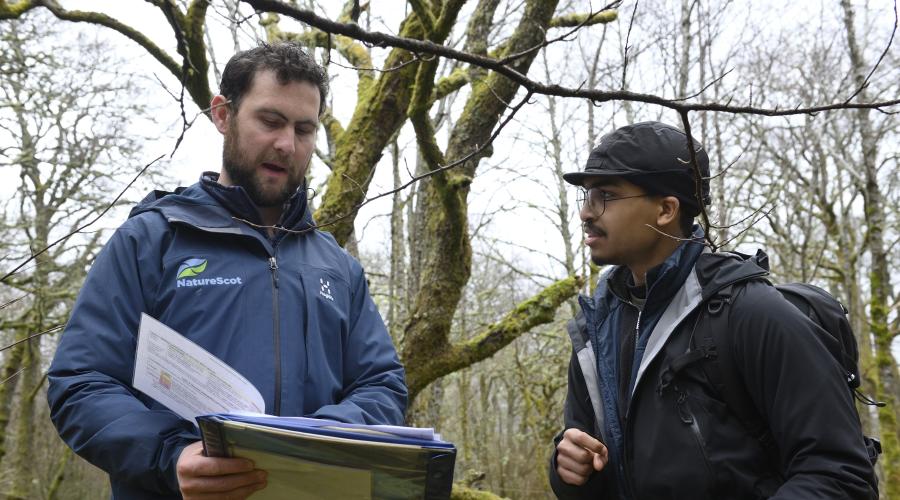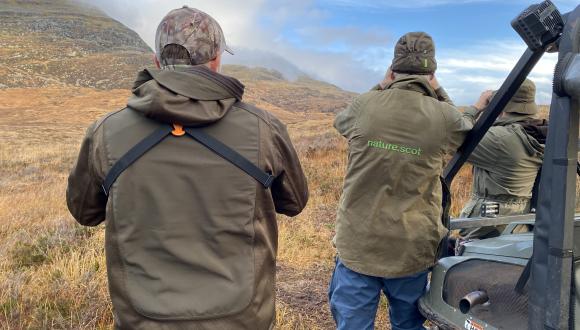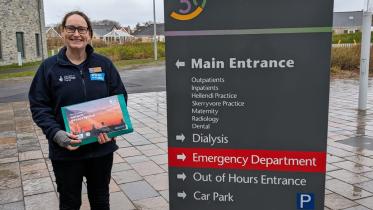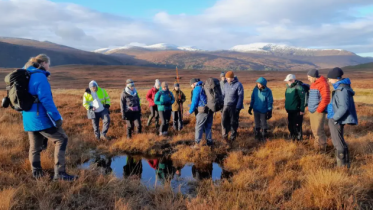
Deer management: Guidance and Best Practice
Our guidance on deer management applies to all owners and managers of land where wild deer are present.
Wild deer play a significant ecological role as Scotland’s largest undomesticated grazers. However, while their grazing can help to maintain many habitats, deer can also have a negative impact on woodlands, farmland and nature through, for example, over grazing and trampling.
Scotland’s wild deer are managed by many organisations and individuals for various reasons, such as:
- as an economic asset
- to reduce adverse impacts on habitats, forestry and agriculture
- for public safety
- for their own welfare
To help ensure deer are managed appropriately, the Code of Practice for Deer Management sets out what deer managers must, should and could do to manage deer on their land.
We can provide advice and guidance to help land managers meet the challenges associated with managing deer. For example, by helping to identify the impacts of deer and running population models to better understand how many deer there could be and how many may need be culled.
Our simple deer population management tool could help you identify the desired population on your land over a specified time frame.
Wild Deer Best Practice guidance
Wild Deer Best Practice is a partnership initiative, with representation from all key stakeholders with an interest in deer management. Guidance is developed by input from individuals and organisations with practical knowledge and experience covering all aspects of deer management in Scotland.
For guidance covering all aspects of wild deer management in Scotland, visit the Best Practice Guides website.
Best Practice guides provide clarity on the law as well as promoting public safety, food safety and deer welfare. Public confidence in these three issues is vital if the way in which we manage wild deer in Scotland is to continue to be respected at home and abroad.
In addition to the suite of Best Practice Guides available online, there are also Best Practice events which are held across Scotland and provide practitioners with opportunity to gain Continual Professional Development (CPD) and keep up to date with changes in legislation and best practice recommendations.





